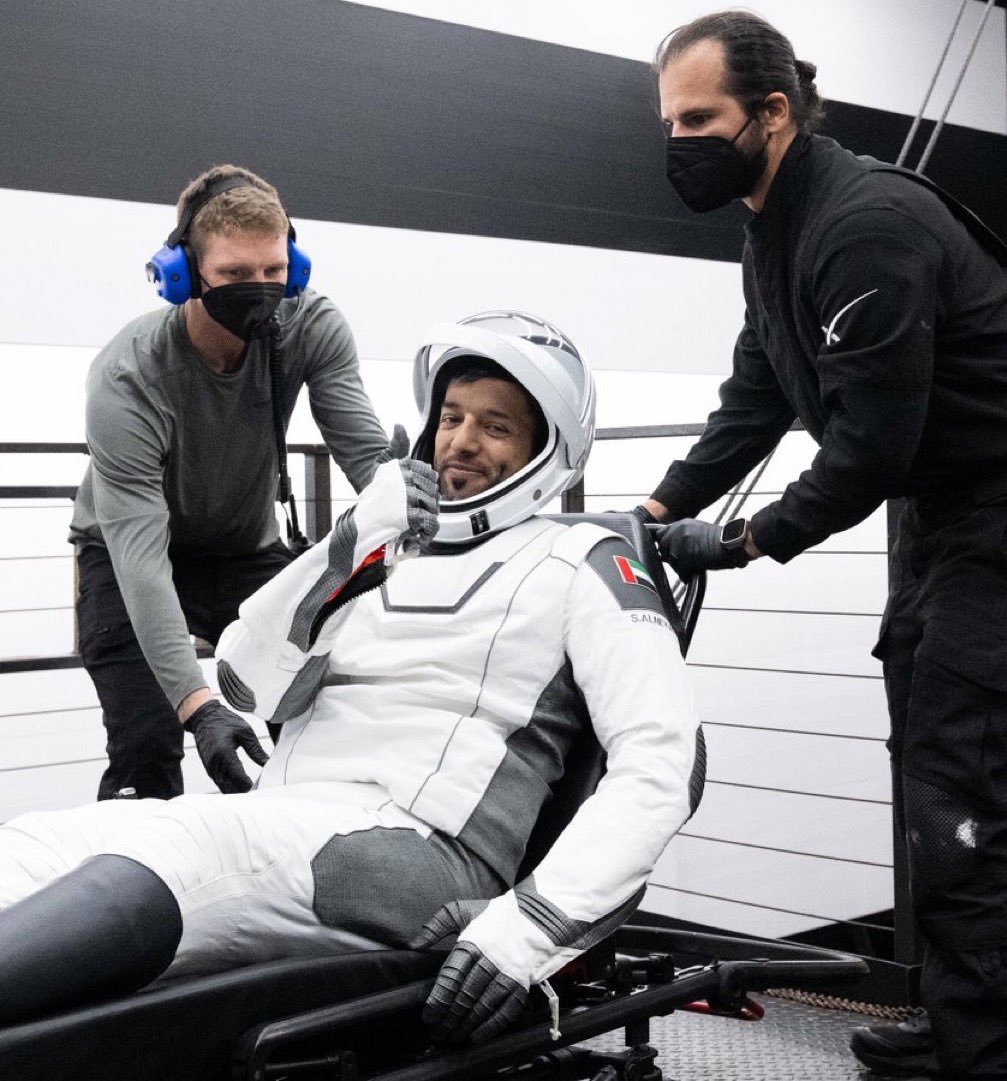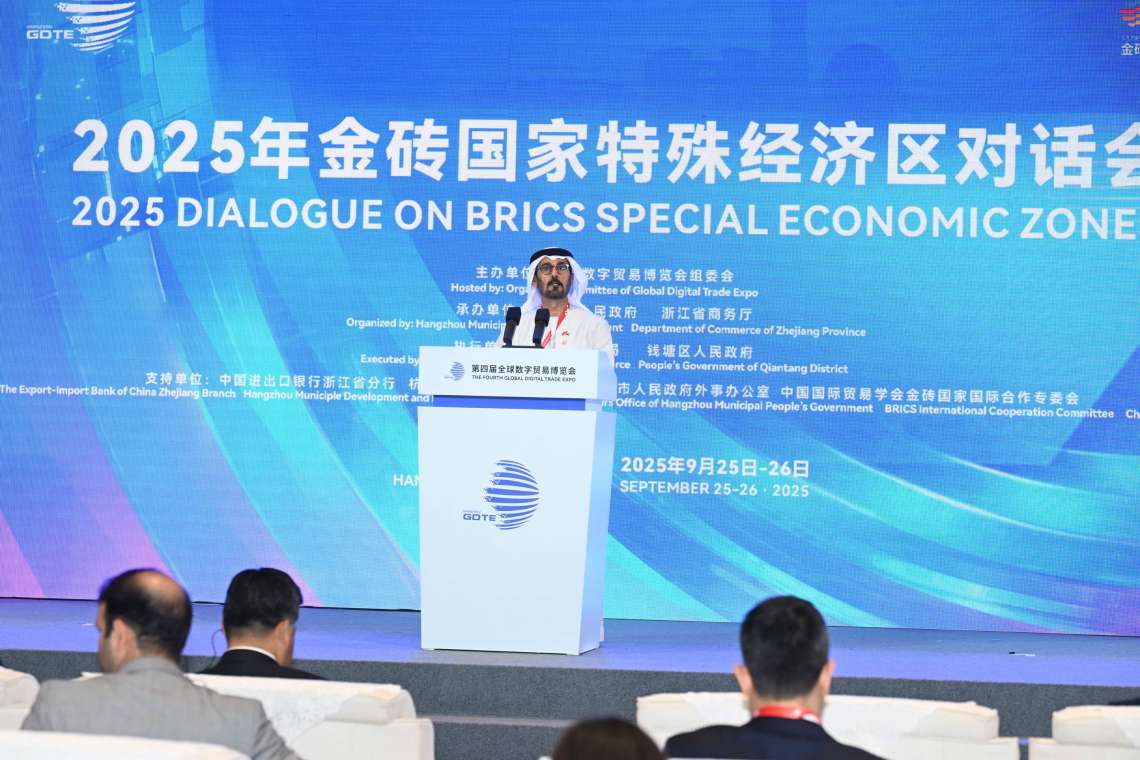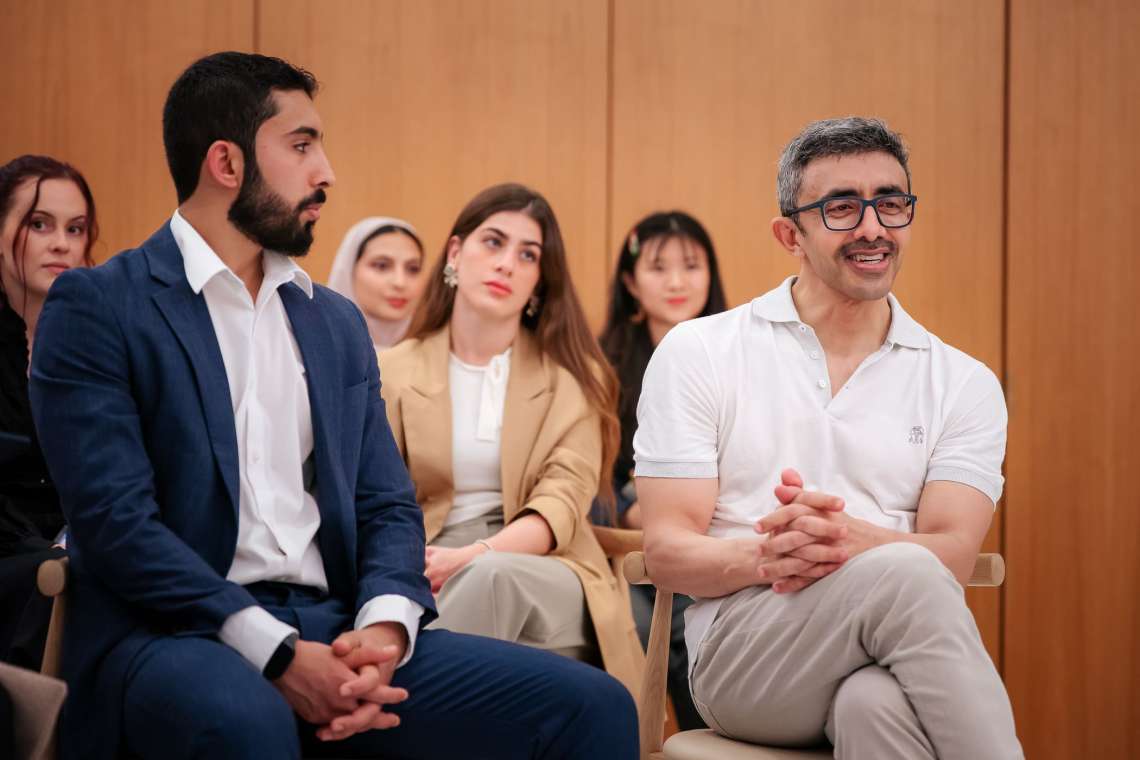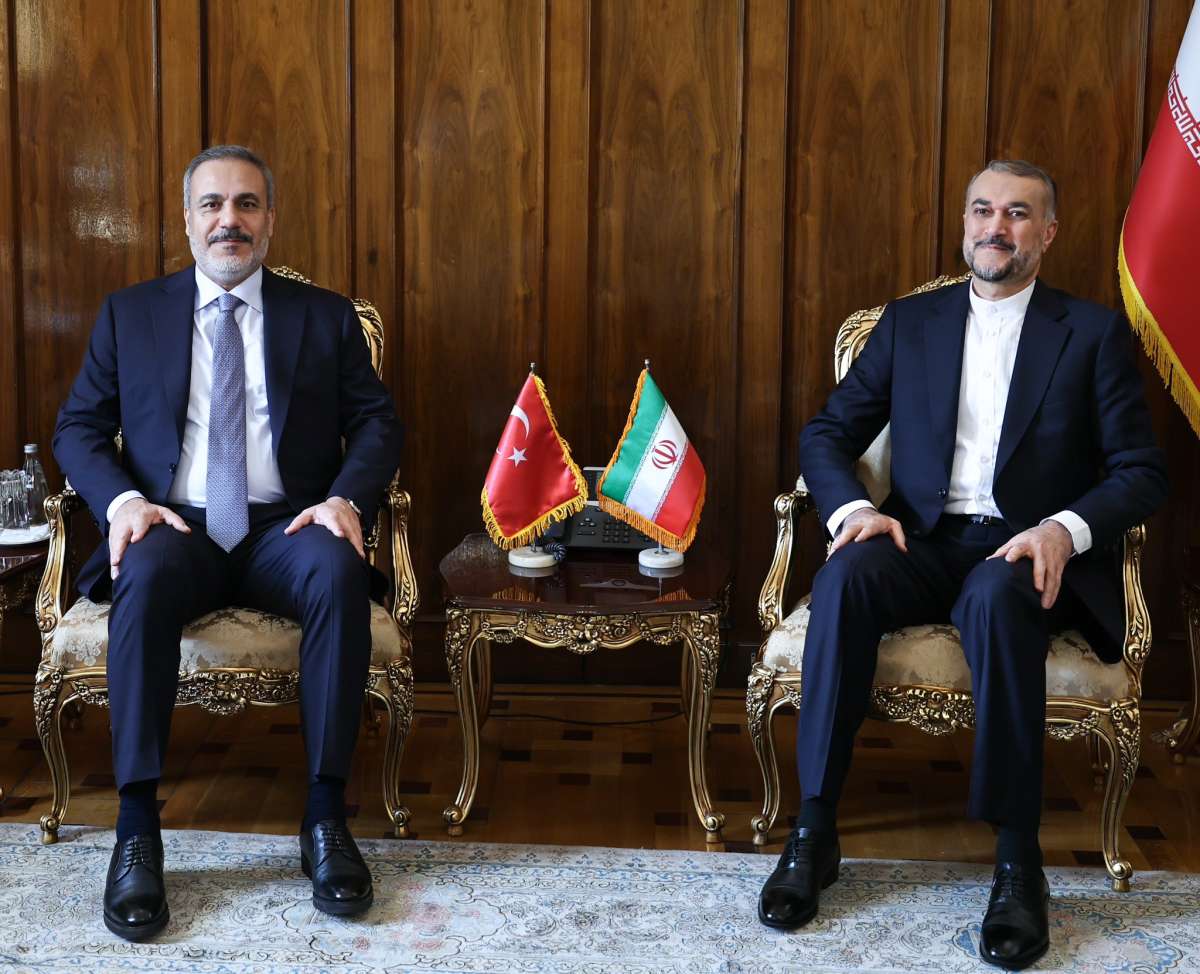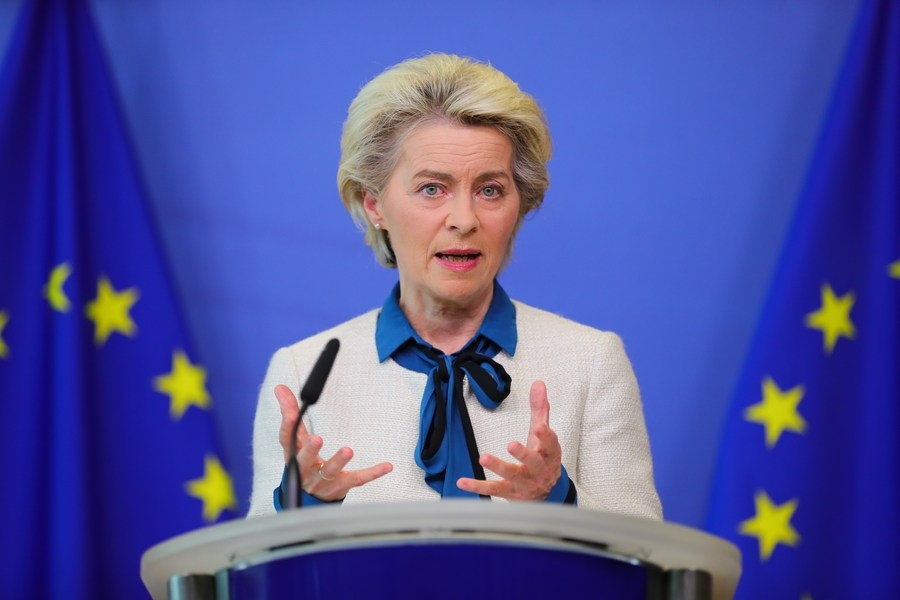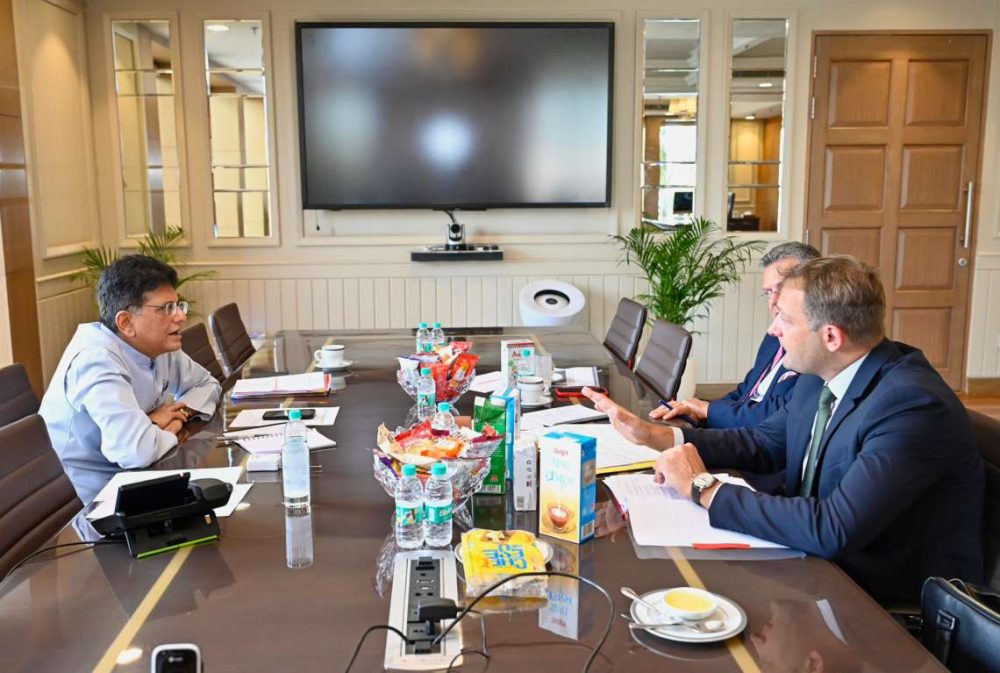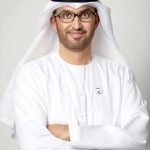The return of Emirati Astronaut Sultan Alneyadi and 3 others marked the successful conclusion of NASA’s SpaceX Crew-6, the sixth commercial crew rotation mission to the International Space Station…reports Asian Lite News
Emirati Astronaut Sultan Alneyadi, along with NASA astronauts Stephen Bowen and Woody Hoburg, and Roscosmos cosmonaut Andrey Fedyaev, safely splashed down in a SpaceX Dragon spacecraft off the coast of Jacksonville, Florida early Monday morning.
Their return marked the successful conclusion of NASA’s SpaceX Crew-6, the sixth commercial crew rotation mission to the International Space Station. The international crew of four had spent an impressive 186 days in Earth’s orbit before landing at 12:17 a.m. EDT.
Teams aboard SpaceX recovery vessels retrieved the spacecraft and its crew. After returning to shore, the crew flew to NASA’s Johnson Space Center in Houston.
Bowen, Hoburg, Alneyadi, and Fedyaev travelled 78,875,292 miles during their mission, spent 184 days aboard the space station, and completed 2,976 orbits around Earth. The Crew-6 mission was the first spaceflight for Hoburg, Alneyadi, and Fedyaev. Bowen has logged 227 days in space over four flights.
Before departing the space station, they said they were craving hot showers, steaming cups of coffee and the ocean air since arriving in March. Their homecoming was delayed a day because of poor weather at the splashdown locations.
SpaceX launched their replacements over a week ago.
AlNeyadi sets historic milestone
Emirati astronaut Sultan AlNeyadi succeeded in achieving qualitative and historical achievements, which consolidated the UAE’s regional and global position as the first Arab country to complete the longest space mission in the history of the Arabs, which lasted for six months on the International Space Station (ISS), and included conducting pioneering scientific experiments that contribute to serving humanity and the scientific community.
AlNeyadi became the first Arab astronaut to complete a spacewalk mission outside the ISS, as part of the 69th mission last April, which lasted about 7 hours, to carry out several basic tasks such as maintenance, in addition to completing the preparatory series for installing a number of solar panels on the station.
This success consolidated the UAE’s global leadership in the space sector, as the country ranked 10th globally in spacewalking missions outside the ISS, which reflects the efforts of the Mohammed bin Rashid Space Center (MBRSC) to continue space exploration. This historic achievement is also added to the record of the Arab world’s contributions to outer space exploration.
After AlNeyadi completed about 4,000 hours of work in space, the Emirati astronaut contributed to the development of scientific and technological advancement in the UAE, by conducting about 200 scientific experiments in various fields that took about 585 hours.
The Emirati astronaut achieved success in scientific experiments in cooperation with 25 local and international universities and 10 international space agencies, as he implemented about 19 research experiments in cooperation with NASA, the European Space Agency, the Canadian Space Agency, the Japanese Aerospace Exploration Agency (JAXA), and the National Center for Space Studies in France.
This cooperation contributed to the completion of the Lumina experiment, the first-of-its-kind to study the degrees of space radiation on the ISS, in addition to preparing scientific medical studies that include studying the cardiovascular system and studying the causes of diseases in space.
AlNeyadi’s journey contributed to enriching society’s knowledge of the space sector and its fields through the “A Call from Space” series, which attracted more than 10,000 people, in addition to organising about 12 visual communications with the public and 7 wireless communications from the MBRSC.
The mission launched by the MBRSC as part of the UAE Astronaut Programme on 3rd March to the ISS is the first long-term mission for Arab astronauts in history, as AlNeyadi arrived at the station aboard the SpaceX Dragon Endeavour, accompanied by the Crew-6 mission team.
It is noteworthy that the UAE Astronaut Programme, which is managed by the MBRSC, is one of the projects funded by the ICT Fund, affiliated with the Telecommunications and Digital Government Regulatory Authority, which aims to support research and development in the ICT sector.


